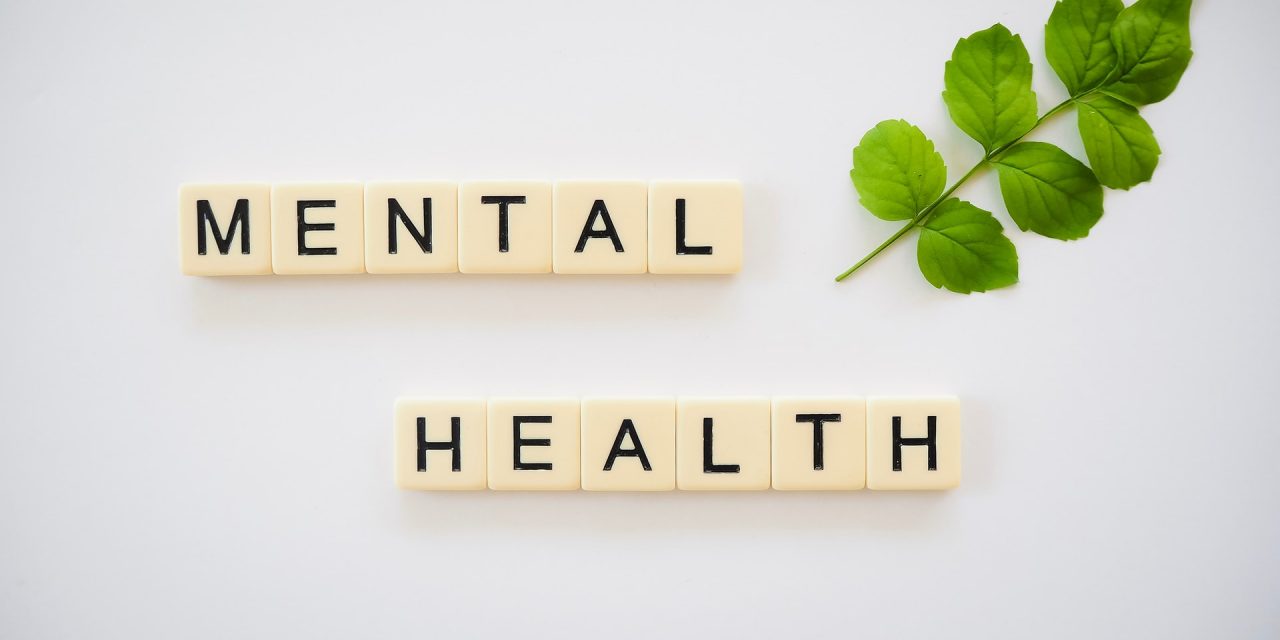Parenting is no easy task. You’re always thinking about how to be a better provider and influencer to your child. Along with that, you have to maintain a steady work-life balance which can get overwhelming. Doing this juggle is bound to put a strain on your mental health, and that’s why you need to find practical, calming strategies to relax your processing unit. To help you out with some of those strategies, read our article on mental health tips for parents to find out more.

Focusing on your own mental health and wellbeing is as important as focusing on your child’s wellbeing.
Be Thankful
This tip may sound too cliché, but the amount of positivity a thankful heart can bring to your mental health is immeasurable. Being grateful when things don’t seem to go your way is challenging. Everyone has bad days, but you need to be mindful to pick out the good elements from them. Keep a small journal by your bedside and before the day ends, jot down all the good you’re thankful for. Small things such as being thankful for a delicious meal, support from your loved ones, or even the joy and laughter of your children can make you have a better outlook on life.
Research also proves that those who wrote what they were thankful for felt better about themselves and were more optimistic. So, practice gratitude! Write thank-you notes to your children or spouse. Read it to them and watch how you impact yourself and those around you. Whenever you get the time, make it a point to write a gratitude letter to yourself too.
Explore The Outdoors
There is nothing more relaxing than going out for an early morning jog on the beach or a challenging trek on a hot sunny day. Your mind opens up, your mood improves and your thoughts are more at ease when you explore the outdoors. As a result, stress levels reduce drastically and you’re better prepared to face the horrors of the day. Therefore, depending on your schedule, it’s vital to dedicate some part of your time away from technology and more connected to mother earth.
Granted, as a new parent, this may be difficult. However, you can develop an outdoor routine and try to include your family in it as well. Outdoor routines don’t have to be restricted to just a day swimming on the beach or long hikes. Plan outings to parks, zoos, etc. Purchase a pram or stroller so you can put your little one in it and head out for a short walk. Anything that’ll help you develop a deeper sense of bonding with your family and free your mind up a bit will help!
Take Care Of Your Physical Health
Parents often neglect their physical health in the process of paying attention to their child’s development. There’s a fine link between the mind and the body and if our body is not looked after, the mind won’t function to its potential. Hence we need to pay more attention and be more responsive to what’s happening in our bodies.
Parenting requires you to be on your toes and you might take that as the sole source of physical activity. But your body requires more than just running physical errands; it deserves something a bit more intense. Exercise allows the release of endorphins into the system which are natural mood lifters. In addition, a good workout also reduces the release of immune system chemicals that’s linked to depression. So, you better get exercising!
You can include aerobic exercises (cycling, walking, running) or strength training sessions (weight lifting) in your workout schedule. Try joining a gym and include your spouse or friend as well if that acts as a motivator. As always, you can also include your kiddies if you can’t leave them unsupervised; start the day with some easy yoga asanas. This has physical and mental benefits for not just you, but also for the physical and mental health of your kid!
Get Proper Sleep
When was the last time you had a proper good night’s rest? If you’re taking time to recall, then it’s probably time for you to pay keen attention to your sleep schedule as well. Sleep schedules as a parent are almost always erratic, more so for new parents going through a sleep regression or dealing with a newborn.
But, sleep influences mood. If you haven’t got enough sleep, you tend to get angry and annoyed easily. Over a period, if this continues, it may lead to depression and you don’t want that happening. Therefore, work out a sleep schedule for yourself. Avoid using electronic gadgets 30 minutes before bedtime; read a book or listen to some soothing ambient music instead.
Eat Healthily
Maintain a healthy nutritious diet. It’s common, especially for new parents, to neglect their dietary requirements and focus more on their children. But you need to break this habit. Having such neglect is unhealthy since your mind and body aren’t getting the necessary nutritional requirements to properly function. For instance, deficiency or lack of vitamin B-12 can cause depression. That’s why it’s important to maintain a well-balanced diet. Eat plenty of fruits and vegetables and include foods that are high in omega -3 fatty acids, such as salmon. Lentils, nuts, and seeds are good brain enhancers as well. So, try to include them in your diet as often as possible.
Spend Quality Time With Your Partner
This is among the most important mental health tips for parents. It gets strenuous and challenging for parents to spend time with each other. The workload, household chores, and the children’s school activities contribute to those challenges, but they can be overcome! If you’re caught in the crossfire in these things, then you’ll have to intentionally make time. Employ a babysitter, or have family or friends look after your children when you’re out with your spouse. Plan date nights, long drives – rekindle the romance. Don’t discuss work-related subjects but focus on the time you’re with your partner. Having such pleasant outings and leaving the hustle and bustle behind will definitely make you feel more relaxed and calmer than before.

Taking care of your health, your diet and exercise are some of the important mental health tips for parents.
Conclusion
Although it’s a wonderful experience to be a parent, dedicating your time and effort to your child is no bed of roses. Due to such strain, there’s a risk of burnout which can send your mental health for a toss if it’s not given time to breathe. We hope that doesn’t happen and believe that you have picked up something from our mental health tips for parents. If you want an advanced method of booking consultations, vaccination reminders, and storing health records, try out our ImmunifyMe app. You can access your child’s health data digitally without the hassle of paper prescriptions.
FAQs On Mental Health Tips For Parents
How Can Parents Improve Their Mental Health?
Parents can take care of their mental health by:
- Being thankful for all the good that’s around them
- Exploring the outdoors
- Taking care of their physical health
- Getting proper sleep
- Eating healthy
- Spending enough quality time with his/her partner
What Activities Help Mental Health?
Try aerobic exercises (cycling, dancing, walking, running) or strength training exercises. They release endorphins into the system that improves the mental health of a person.
Does Parenting Affect Mental Health?
Parenting does put a strain on mental health. You have to attend to the child’s needs all while trying to establish a work-life balance. There is a risk of getting burnt out if the parent neglects their mental health and this can impact the way they raise their children. That’s why it’s so important for parents to check on their own and their spouse’s mental stability from time to time.






